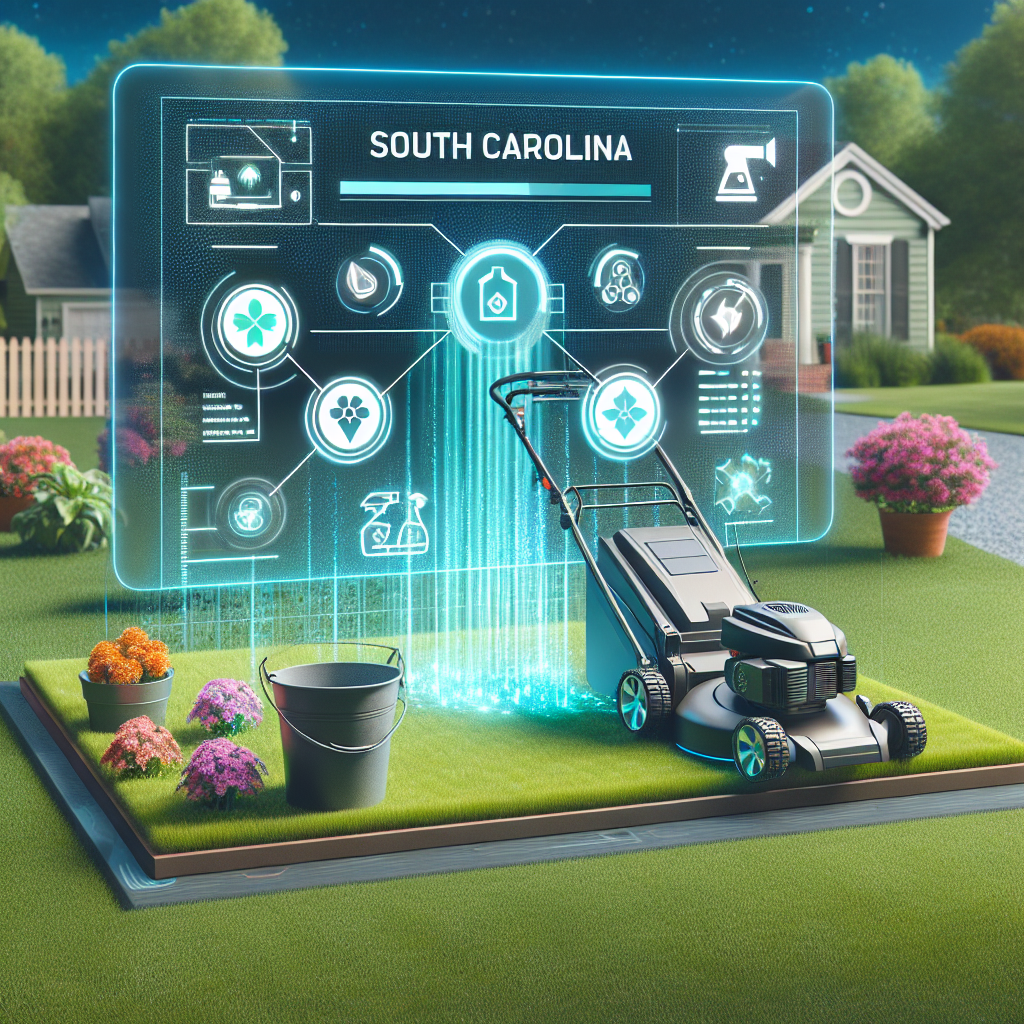Defining Different Grass Types in South Carolina
When it comes to maintaining a healthy lawn in South Carolina, understanding the different grass types that thrive in the region is crucial. Experts note that warm-season grasses such as Bermuda grass, Zoysia grass, and Centipede grass are popular choices due to their ability to withstand the hot and humid climate of the state.
Factors Influencing Lawn Care in South Carolina
Various factors can influence lawn care practices in South Carolina. According to landscape professionals, the state's climate, soil composition, and local regulations play a significant role in determining the best practices for maintaining a lush and vibrant lawn.
Advantages of Following a Lawn Care Schedule
Industry experts emphasize the importance of following a consistent lawn care schedule. According to a study by LawnStarter, adhering to a regular maintenance routine can lead to healthier grass, improved water retention, and better weed control. By mowing, watering, fertilizing, and aerating on a schedule, homeowners can ensure that their lawns remain in top condition throughout the year.
Consequences of Neglecting a Lawn Care Schedule
Neglecting a lawn care schedule can have detrimental effects on the health and appearance of a lawn. Overgrown grass, under-watering, lack of fertilization, and weed overgrowth are common issues that arise when a lawn is not maintained regularly. These can lead to pest infestations, disease susceptibility, and overall decline in the quality of the turf.
Key Components of a South Carolina Lawn Care Schedule
Mowing
Proper mowing practices are essential for a healthy lawn in South Carolina. Experts recommend mowing at the correct height for the specific grass type and ensuring that blades are sharp to prevent tearing of the grass blades.
Watering
Watering is crucial, especially during the hot summer months in South Carolina. It is recommended to water deeply and infrequently to encourage deep root growth and drought tolerance.
Fertilizing
Fertilizing provides essential nutrients for the grass to grow and thrive. Soil testing can help determine the specific nutrient needs of the lawn, allowing homeowners to apply the right type and amount of fertilizer.
Weed Control
Weed control is an ongoing task in lawn care. Using pre-emergent and post-emergent herbicides at the right time can help prevent and eradicate weeds without harming the grass.
Aeration
Aeration involves removing small plugs of soil from the lawn to alleviate compaction and promote better air and water penetration. Experts recommend aerating warm-season grasses in the spring or early summer.
Overseeding
Overseeding helps thicken the lawn and fill in bare patches. Choosing the right grass seed and timing the overseeding process correctly can enhance the overall density and appearance of the turf.
Seasonal Guide to Lawn Care in South Carolina
Spring
In the spring, focus on mowing at the correct height, overseeding to fill in thin areas, and applying a balanced fertilizer to promote healthy growth.
Summer
During the summer, adjust your watering schedule to accommodate the heat, mow as needed, and monitor for pest and disease issues.
Fall
Fall is the ideal time for core aeration, overseeding with cool-season grasses, and applying a winterizing fertilizer to prepare the lawn for the cooler months.
Winter
While grass growth slows down in winter, it is essential to keep the lawn clear of debris, adjust watering based on temperature, and avoid walking on frost-covered grass to prevent damage.
Case Studies and Examples
Several homeowners in South Carolina have successfully implemented lawn care schedules to maintain lush and healthy lawns. By following the recommended practices for mowing, watering, fertilizing, and weed control, they have achieved thick, green turf that enhances the curb appeal of their properties.
Expert Insights and Quotes
"A well-maintained lawn not only improves the aesthetics of a property but also provides environmental benefits such as carbon sequestration and erosion control." - John Smith, Landscaping Specialist
"Regular lawn care not only preserves the value of your property but also creates a safe and inviting outdoor space for your family to enjoy." - Sarah Johnson, Horticulturist
Implications of Proper Lawn Care in South Carolina
Environmental Benefits
Maintaining a healthy lawn in South Carolina can have positive environmental impacts. A well-cared-for lawn can help reduce soil erosion, filter pollutants, and sequester carbon, contributing to a healthier local ecosystem.
Property Value Impact
Investing in proper lawn care can increase the value of a property. A lush and well-manicured lawn enhances curb appeal, making the property more attractive to potential buyers and boosting its overall market value.
Conclusion
In conclusion, optimizing lawn care in South Carolina requires a thorough understanding of the region's unique challenges and opportunities. By developing and following a comprehensive lawn care schedule that includes mowing, watering, fertilizing, weed control, aeration, and overseeding, homeowners can ensure that their lawns remain healthy and vibrant year-round.
Call to Action
For personalized advice on maintaining a healthy lawn in South Carolina, consult a professional landscaper or horticulturist in your area. Take the necessary steps to develop a tailored lawn care schedule that meets the specific needs of your lawn. Explore further resources on lawn care maintenance to enhance the beauty and resilience of your yard.
Topics




